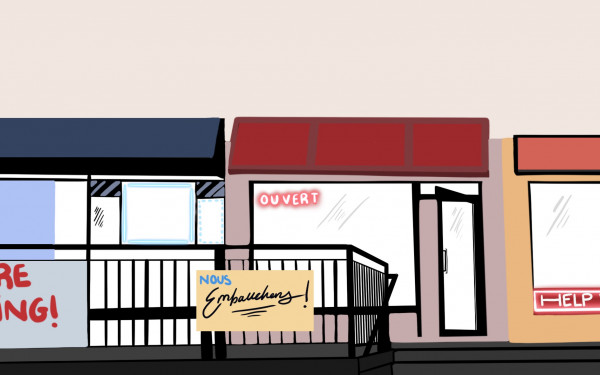You Are Not a Social Reject
An Anxious Girl’s Guide to FOMO
One weekday afternoon, some of my friends decided to go eat at an all-you-can-eat taco restaurant. I tried my best to make it, but I was unavailable because I had class.
This was the only time that they were all free, and I felt like I was going to miss so much. Feeling sad and lonely, I went to class and tried to keep my brain occupied with something else so I wouldn't freak out.
I know that I am insecure and that I lack a bit of confidence in my friendship with them—I am aware that we are already on thin ice because of past issues. So when they went out without me, I freaked out knowing that they would have an awesome time despite my absence.
The fear of missing out, commonly known as FOMO, is the uneasiness or anxiety of being left out of things like events, gatherings, and other types of social activities.
In my experience, FOMO comes from insecurity; it’s a lack of confidence in your relationships.
This theory definitely holds true because on the other hand, with some of my other friends, it’s the complete opposite. This weekend, my friends from journalism school are going out for drinks, and I will not be able to make it despite trying to move my schedule around to try to be there.
How do I feel? I obviously wish I could be there, but I know that they will fill me in on all the details and the crazy things that happened that night and include me as much as possible. I am confident enough in our friendship that I don’t experience that unpleasant FOMO feeling, that feeling that makes my heart drop to my stomach.
Feeling FOMO can make you feel disconnected from the people that surround you.
It could manifest itself when you’re not invited to a birthday party or when your coworkers decide to go out after hours without inviting you. It’s not only experienced within friendships.
But it’s not purely social; there’s a biological reason for FOMO. The amygdala is the part of the brain that determines if something is a threat to survival. It recognizes the feeling of being left out as a danger, which is where FOMO comes from.
FOMO has especially negative mental impacts on teenagers and young adults. Loneliness, low self-esteem, anxiety, jealousy, and depression are some other negative mental responses to it. I have experienced it myself; the jealousy and anxiety that comes with FOMO is draining.
Given that FOMO impacts teenagers and young adults the most, students are especially prone to it. Having to make the decision between going out one night or staying home to study can be hard. Some people would easily choose studying over risking a failing grade, while others might have too much FOMO and decide to go out.
It’s essential to take a step back and analyze whether or not your feelings are just your brain fooling you. I sometimes feel that I’m still young and should enjoy life, but also that my future is more important than one night out with friends.
I personally try to not overthink and be realistic when it comes to these situations. If I decide not to go out with my friends because I am studying, I will close my phone and not look at their stories so I don’t regret my decision. If I see pictures and videos, I know they will upset me. In that case, I try my best to disconnect myself from social media so I don’t get FOMO.
Even though FOMO is really unpleasant, it’s a normal part of any relationship. Everyone experiences it one day or another, but we can’t let it ruin our mood. You are not a social reject. When you have your priorities set in the right place, you’ll see who are the people that stick around.




_600_375_90_s_c1.jpg)


